#mythology ccw
Text
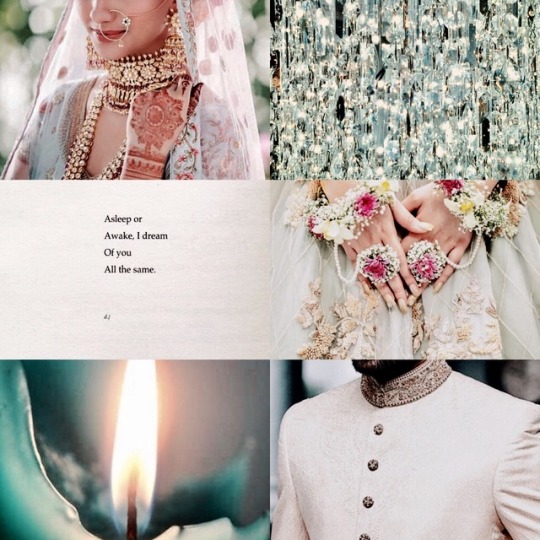
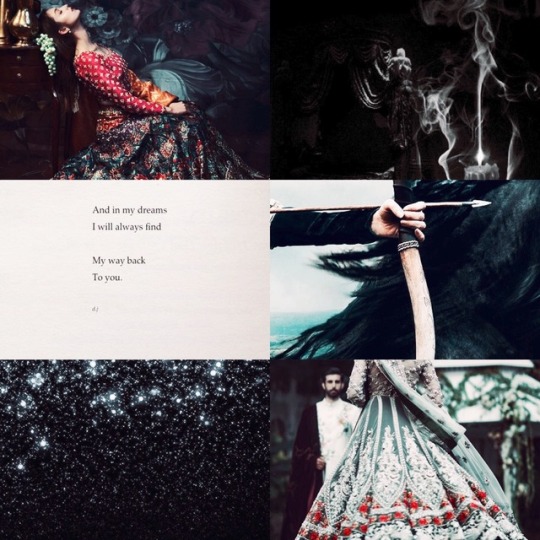
Hindu Mythology Couples Celebration Week~
( @avani008 )
Urmila-Lakshman;
He sat by her side and talked to her, she was
dearer to him than his own life: “Woman,” he said,
“The moon is nothing before your face, and betel misses your lips,
Speak your words, sweet like nectar, and cool my parched soul.
Your feet are soft like lotuses, wake up and wear gold on them.” - Song of Urmila’s separation
161 notes
·
View notes
Text
aagata
this is a horrible mishmash of a bunch of ideas and also just want to recognize that theres no real reason for this to be a genderswap except that this had originally started as a genderswap a year ago and i was too lazy to rewrite a few parts to locate them within womens quarters instead of the general city. i hope you can find at least some parts to like! thank you @avani008 for being an amazing mod !!!
When Rukmaratha is sixteen he is sent to Mathura to witness the bow festival of Kamsa, the General of Jarasandha and a man Rukmaratha’s eldest brother attempts to imitate in the relative privacy of his chambers. It is the thickness and curl of the mustache, Rukmaratha muses absently, that Kamsa has been able to perfect over all others during the last 20 years of unchallenged supremacy.
“Have you heard,” someone whispers behind Rukmaratha and despite his years of royal etiquette training he leans back to listen. “She survived.”
“The elephant? I heard it was mad!”
“It was. We all thought the brother would be the one to control it, but I heard she simply stepped from behind him and fought the beast in the street like any other man.”
“You say that as if there is a man alive who has managed to defeat Kuvalayapida.” Rukmaratha flushes, only realizing that he has spoken when the men turn away from each other to face the interloper. Still, the idea that Kamsa’s wild elephant has been tamed is such that Rukmaratha cannot bring himself to apologize.
“You’re right,” one of the men, seemingly an affluent trader, laughs. “And perhaps that is why the girl Krishnaa succeeded. She ran in and out of Kuvalayapida legs until he grew weary, and then she allowed herself to be captured by his trunk.”
Rukmaratha thinks of the many men Kuvalayapida has strangled but the trader only smiles, changing his stance from that of a local gossip to a bard retelling a tale of yore. “Just as the beast would have strangled her, she began to speak, even as she was held at such a height that a drop would have killed her instantly.” Rukmaratha’s eyes widen at the thought. “No one could hear the words,” the trader continues, “but it seemed that Kuvalayapida loosened his grip until Krishnaa could balance on his trunk, and then climb to sit atop the elephant as if he hadn’t been attempting to kill her just moments before!”
“Oh,” Rukmaratha sighs, and wonders at the way his heart races just hearing about a tale of such valor. What it would be to see such a feat in person. “I have never heard her name,” he says after a moment of thought. “Is the lady a princess from afar?”
Both men laugh, the first so hard that tears begin to stream from his eyes. “Hardly,” the second man chokes out when he sees his companion is in no position to speak. “She is the daughter of the local cowherd chieftain Nanda. They came to see the festival.”
***
Years before Rukmaratha is born, when even his eldest brother Rukmi is barely six-months, Jarasandha invades. Bhishmaka is the Bhoja’s eldest cadet, the Crown Prince of the kingdom and he rides valiantly in his nation’s defense but fails. His father the King is forced to step down, and Bhishmaka is elevated in his place, humiliating defeat a constant reminder of the consequences of rebellion.
Rukmi, Bhishmaka’s only child at the time, is demanded as a sign of mutual goodwill. He will be raised well, Jarasandha insists, and trained amongst the best Magadha has to offer. It will be a far better life than one found in Kundinapura and in time, Jarasandha assures the frantic Queen, Rukmi will be returned to his homeland a seasoned warrior and an appropriate executor of Jarasandha’s will.
In return, Bhishmaka will have the lion’s share of the royal obligations -- Jarasandha has no use for the minutias of rule and cares little beyond what Vidharbha can provide in soldiers and taxes. But Bhishmaka, haunted by his loss, has little stomach for the throne; it is his younger sons who, between themselves, manage the daily tasks of royal command.
As a child Rukmaratha is often sickly, so he grows neither strong nor skilled and as the youngest is able to take advantage of the fact that there was always an elder brother more suited to the Emperor’s needs. He is allowed then, despite the Imperial dictate that demands the separation of royal son from homeland, to remain with his parents in Vidharba. Rukmaratha finds this suits him entirely, and manages to cultivate a wide variety of intellectual interests that Jarasandha deems amusing as opposed to a threat.
At just sixteen Rukmaratha is known to be a scholar, a musician, a dancer. He is charming, Imperial spies say, and witty. He is kind to those who know him, shows great compassion to the subjects of his father, and if some say that he exerts an undue influence on the minds of his nation’s common-folk, he is believed far too innocent to take advantage.
Rumaratha is all of these things, but in his heart, he is also a traitor.
***
In the city of Mathura, inside and out of the palaces that Rukmaratha’s fellow royals are kept the people speak of nothing else. “Kamsa is dead,” they say, even while the man takes breath, “Her Child has Come.”
Rukmaratha walks the streets wearing cotton cloth and silver around his neck in an attempt to understand the way the city has come alive almost a generation after its initial subjugation. In every shop and street corner there is a whisper, a story, a hope that Rukmaratha did not know had been fostered. A dying ember that somehow had kept warm the Yadava heart during the years since Kamsa had walked into the Gathering of Chiefs as Ugrasena’s son and walked out their King.
“Well you see,” the Royal flower vendor, a man whose family has sold all his garlands to the Palace for generations had said, voice low, “there was the prophecy--”
This much, even Rukmaratha knows. The marriage that would consolidate the two most powerful clans of the Mathura Yadavas, the voice that proclaimed the Yadava general Kamsa’s death at the hands of his beloved sister’s eighth child. Vasudev’s bargain for the life of his wife in exchange for any children they might have in the future. In Vidharbha, Vasudev is considered quite the fool for risking the hell reserved for those who have no sons to perform their final rites, especially when for all his efforts he wound up with a wife gone mad.
“It is not madness,” the vendor snaps. “It is divinity.”
Rukmaratha raises an eyebrow. What few reports exist of the lady Devaki report that she has spent the years since the loss of her eighth child in relative silence, singing cradle songs to babies long dead.
The vendor sighs. “If it is madness, then sure it is of a type divine, borne of Her sacrifice for us Yadavas struggling under the weight of His rule.” They speak of Kamsa in this way, 30 years after the creation of his throne, afraid of summoning his presence by uttering his name. Devaki, too, is only ever referred to as Our Lady. Vasudev, a man whose plight is so popular outside, almost seems to have been forgotten.
“In the beginning,” the vendor whispers, picking up the thread of his story once more, “She refused. Our Lady was unconscious while the skies spoke, and when she woke she decided that she would never know Vasudev as a husband in order to keep herself from the grief of giving life to children already dead.”
Rukmaratha swallows. “What changed?”
The vendor clenches his jaw. “He became King. Six hundred of our sons were killed when the Emperor tried to take Hastinapura, and the Vrishni villages revolted. Thirty were burned entirely before they agreed to His terms.” His eyes widen, gaining the type of sheen only born of true fervor and devotion. “They say that She could hear the wails of the Yadava women from the palace where He kept them imprisoned, and that their grief at losing one son was such that She decided that She could sacrifice seven of her own.”
It is a compelling tale, but for the one part that Rukmaratha believes must be missing. The prophecy spoke of Kamsa’s death at the hands of Devaki’s eighth, but as far as what Rukmaratha has heard, the eighth child is dead. Her head was bashed against the rock of Devaki and Vasudev’s prison cell, and it is believed that it was this final loss that finally drove Devaki insane.
“Seven?”
The vendor smiles. “The first six, we all watched fall under their uncle’s sword, murdered in the center of the city for all of us to see. The seventh miscarried, but so late that it might have been called a birth had the child lived. But the eighth.” His voice lowers even further, a murmur almost lost amongst the noise of the market. “Usually the children were born in the palace, even in the years after Our Lady and her husband were moved to the dungeon. When Our Lady felt the first of the birth pangs she would be taken to a room, and the news announced throughout the city. Just when the infant left her body it would be taken by a midwife, cleaned of the birth blood and presented to Him, to be executed in the city center in front of us all.”
Rukmaratha winces at the brutality of it all. “Is this not what happened with the eighth?” He would have assumed Kamsa to be even more strict when faced with the actual child of his prophesied death.
“It should have,” the vendor whispers, “but it didn’t! There was a storm around the time the lady Devaki was due to give birth, one of such power and floods that had never been seen in Mathura before. No one could move from their homes a full fortnight afterwards, and when we did, the child was gone.”
“Gone?”
The vendor nods. “There was a child when He walked into their prison cell, and that baby was killed like the others but when it died the skies laughed and said that it was too late. The true Deliverer was alive.”
Suddenly, he throws his head back and laughs, the sound even louder for how quiet he has been so far. “That is the child that has returned. We don’t know where they are, but somewhere in Mathura the Deliverer has arrived.”
***
As a child, Rukmaratha knows more of his grandfather than of his noble father Bhishmaka. Rukmaratha’s mother is too busy with the grief of losing so many of her sons to the Imperial core, and loathe to build a connection to another boy that will only be made a stranger in a few short years. His father is more given to brooding in his throne room than to noticing the general existence of his youngest, most sickly son. By the time that the Queen realizes her child’s delicate disposition will keep him away, that she can be free to shower Rukmaratha with all the love and care she had previously withheld, the damage has been done -- it is to the deposed king that Rukmaratha calls, for advice, for kisses, for a listening ear as Rukmaratha spins stories of what things will be like when Jarasandha is dead.
Rukmaratha’s grandfather, still smarting from his forced abdication, is perhaps not the most diligent agents of Jarasandha’s empire when it comes to quelling dissent. Rukmaratha’s lessons, entirely the purview of his grandfather, are of a type not usually granted to sixth sons -- he is taught how to rule only so that he may one day teach his own son, and preserve the ways of the Bhojas when his elder brothers cannot. It is under his grandfather’s watchful eye that Rukmaratha is taught the ways of the Bhoja kings, how Bhojas wage wars of peace, how Bhojas only collect revenue when their dependents prosper. There are not many things available to those who wish to work against the will of the Empire, but Rukmaratha is allowed to walk the lands that his grandfather cannot and in private he manages to relate stories from faithful subjects, all only too glad to keep up a correspondence through Rukmaratha to comfort their old King now under house arrest.
The Vidharbans are hungry, and grieving the loss of their sons to the same army that has stolen Rukmaratha’s brothers. They are forced to give too much of what they produce to maintain the Imperial forces, not only Jarasandha’s army but the host of Imperial officers that quell rebellion when local royalty is unwilling. People are afraid to have children, lest they force them to grow up under the iron fist of Magadha that will eventually grow so tight that they will die, gasping for air.
“Grandfather,” Rukmaratha asks one day, skin burning from a fever that had swept through the Vidharban capital and left only funeral pyres in its wake. They had all been so careful, but there has never been an illness caught by a citizen of Kundinapura that did not eventually leave its mark on the youngest prince. Rukmaratha’s grandfather is bent with age but still sits beside him, dipping silk cloths into cold water and laying them across Rukmaratha’s burning forehead.
“Grandfather,” Rukmaratha breathes again, “will things always be this way?”
Will I die even as Jarasandha lives? Will we all?
Rukmaratha is so warm that he can barely feel the fingers his grandfather brushes against his cheeks. Later, the doctors will tell him that his survival was an act of the Almighty, that there must have been a reason for him to live when so many others had succumbed.
Later, Rukmaratha will believe that he lived, in order to realize the truth of his grandfather’s next words.
“No,” the King says, shoulders straightening as he moves Rukmaratha’s head until their eyes can meet for Rukmaratha to know the truth of what he says. “One day things will be better. And we will all be alive to see it.”
****
The second story Rukmaratha stumbles across almost by chance, the stray bits of a tall tale carried by the driver of a bullock cart that passes in front of Rukmaratha as he crosses the street in search of news about the Deliverer.
“It’s true,” the cowherd shouts to his friend sitting in the back. “She has Arrived!”
Rukmaratha, hearing the reverence and joy that only comes when the Yadavas speak of their savior, follows the cart as it wends its way out of the Mathura city center and towards the camps of villagers who have come to witness the celebrations and sell their specialized wares.
“Excuse me,” he asks, throwing away a lifetime’s worth of royal courtesy and etiquette. “Who is She?” The cowherds, taken aback only for a moment, look between themselves before inviting Rukmaratha into their camp.
15 years ago, Devaki delivered her eighth child, a baby that outside Mathura was known to be dead. Kamsa, they all agree, executed a child for the eighth time -- but for this, the all important agent of his death, he was not prepared to leave anything to chance. Every Yadava born the year of Devaki’s pregnancy was sentenced to death, soldiers dispatched to every village and city street to check for children and deliver them to a massive funeral pyre set up in the stadium that now hosts the Lord’s Bow.
In Gokul, the villagers whisper, a child was born, the fruit of almost a decade of prayer by parents slowly entering middle age. The birth is long, and Yashodha, wife of the kindly Vrishni village head Nanda is almost lost -- the village women take turns nursing her daughter during the long weeks of Yashodha’s recovering, and by the time Kamsa’s soldiers makes their way to Gokul the baby girl is child of them all.
The villagers give up their own children, all infants under the age of one, but they balk at turning over the child Krishnaa, skin as dark as the rain clouds that covered the sun the entire time her mother labored. The other women might have other children, or already have enough that they can believe that their grief will someday pass. Yashodha, who has just celebrated 40 years, whose braid contains streaks of grey amongst the black, will not. Yashodha, who has only ever lived in hope of a child, who has kissed every one of Gokul’s children and sent them home with far too much butter and curd, will not survive the loss of her girl.
For a month, the gopis pass Krishnaa from house to house, hiding her in their kitchens, in their cupboards, even in their skirts as the soldiers roam in search of babies for Kamsa’s grand pyre. The soldiers leave, and Yashodha is finally strong enough to host a festival in honor of the Great God in thanks for His blessing. There is talk first, as to whether her joy might be considered entirely appropriate amidst everyone else’s grief, but in the end Yashodha sits with every woman of Gokul marvelling at the beauty of their collective baby. Never, they say, has a child ever been loved like Krishnaa.
It is for this reason, that the arrival of Putana takes them by such surprise. Finally the cowherds believed themselves to be safe, and Krishnaa is kept proudly in the swinger set in Nanda’s courtyard, finally able to be admired by all in the light of day. When she is hungry she is picked up by the nearest woman with milk in her breast, passed to another to be bounced, and still another to be rocked back to sleep before being laid in her cradle. It is almost too easy for Putana, poison smeared across her nipples, to take Krishnaa to her breast and hold her there until she dies.
Putana, that is -- Krishnaa suckles all of the milk out of Putana’s breast, and her life as well. It is only when Putana collapses that the villagers realize that something was amiss.
The story passes from Vrishni village to Vrishni village like wildfire, a glimmer of hope in the countryside for people who have never concerned themselves with the story of the Deliverer, never concerned by the goings on of the city unless they were being robbed of their infant children.
Demon after demon finds its way to Gokul, and demon after demon finds itself dead at the feet of the newly christened Gopi of Gokul. Not even the eventual move to Vrindavan, an experiment to see if it was the land or the child that was cursed, is enough to change the name by which Krishnaa is known by in the grazing lands of Braj. Vrindavan, close to Andhaka led Barsana, only encourages the legend to spread beyond the ears of Vrishnis, and where their clan counterparts in the city have formed an alliance through shared grief at the state of their scions, Andhaka and Vrishni cowherds find themselves united in the face of a miracle.
The Gopi of Gokul lives, again and again, where every other Yadava child has died. Kamsa, every villager says, has grown obsessed with this girl he cannot kill, refuses to acknowledge his failure and instead sends demon after demon, destroying Braj in pursuit of this final life that has managed to survive his orders. Krishnaa is taken, beaten, drowned, burned and still they find her smiling, standing proud amongst the corpse of the fool instructed to deliver her corpse. This, Rukmaratha realizes, is the tamer of Kuvalayapida who succeeded where all others have failed.
Poisoned water has become clear, the villagers say, and the Govardhan mountain rose in defiance of the God Indra at her touch. The Yadavas of Mathura dismiss the cowherds as simple, villagers prone to spinning tales for their own amusement. Besides, if there were to be a person capable of such miracles, surely it would be the Deliverer, whose arrival was heralded by the Gods themselves.
The idea of a village cowherdess, defeating demons even soldiers would quail at facing. Absurd!
***
Rukmaratha enters Kamsa’s stadium on the last day of the Bow Sacrifice, his head spinning with everything that has transpired. Mathura, it seems, has become the site of miracles -- Kuvalayapida is tamed one day, a hunchback woman made straight the next. The day before, Kamsa’s sacrificial bow, the weapon of the Great God was broken in two.
With no bow to offer back to the Lord, Kamsa has called for an afternoon of wrestling. The stadium buzzes with barely contained excitement. Those of Mathura clasp hands, waiting with bated breath for the appearance of their Savior after 30 years in the darkness. Rukmaratha can see the cowherds of Braj laughing, talking easily of the last days’ miracles after years of their own.
There is an idea slowly dawning on Rukmaratha, a story so incredible that it is frightening to even contemplate. There was a prophecy, and a storm during which two impossible children are born. Vasudev, erstwhile chief of the Vrishnis, delivers his own child inside prison walls, a baby believed to be the salvation of Mathura.
The people of Mathura believe that their savior escaped. If Vasudev could, somehow, have found his way out of the dungeon, where would he have gone?
In the countryside, safe in a Vrishni village grows a girl who defies the will of Kamsa, performing miracles as easily as breathing for the entertainment and satisfaction of her peers. Her father Nanda is proudly known to have been the particular friend of his clan chief Vasudev, playmates for the summer that Vasudev spent amongst the cowherds that he would one day come to lead.
Is it possible, Rukmaratha wonders, for the two legends to be one and the same? For the Deliverer, child of the two most powerful Yadava bloodlines, to have been raised the daughter of a cowherd, dancing and playing the flute for her flock when she is not eliminating Kamsa’s demons?
The crowd roar, and Rukmaratha puts aside his thoughts to find Chanur, Mathura’s finest wrestler screaming a challenge to the person who has captured the Yadava imagination.
“I know you are here,” he calls out. “If you truly think that you can kill my King, why don’t you come and try me first? Fight me like a man if you dare.”
There is a moment, before the world changes, when Rukmaratha wonders if it is possible for prophecies to come true. If there really is a Deliverer, Devaki’s miraculous eighth child spirited away only to return all these years later and rescue the Yadavas from the yoke of their tyrant. If there really can be a girl who lifts mountains, who has waged a silent war against demon and god alike and won.
He watches the cowherds of Braj, notices the resignation on the man he identifies as Nanda’s face as they all part. What Rukmaratha had struggled to even contemplate instantly becomes clear. The Deliverer walks away from the family that had, for sixteen years provided shelter, and takes her first step into the arena of her destiny.
The crowd, which had grown silent during the wait, erupts. All of them, however they know her, united in this moment by their belief in the miracles she alone can create on their behalf.
Ten thousand infants exactly Krishnaa’s age are dead, ten thousand more lost to the ravages of the Maghadhan lust for empire expansion. Rukmaratha wonders faintly at how a nation’s hope can rest on the slender shoulders of this girl busy unraveling her turban. Now that he can see her outside of the legends passed on the street he realizes that she can’t be more than a year younger or older than he, and when he looks her body is slender in a way that the giant at her side is not. Rukmaratha is sixteen, and later he will tell his wife that there was a time when he removed his crown and thought to run down ten flights of steps in a haphazard plan to save the Savior of Mathura from the grip of the wrestler Chanur.
The fact that Chanur is dead by the time Rukmaratha jostles his way past even one flight of kings is irrelevant -- it is the thought, his wife insists, that counts. But now Rukmaratha cannot see her face, so he contents himself with observing the way that Krishnaa’s hair has come undone from its knot, strands blending into the dark skin of her shoulders, her neck, eventually falling so low as the small of her back as she walks from Chanur’s body towards Kamsa’s throne. The red of Chanur’s final flailing breaths has stained the yellow cloth around her waist, tied above her knees in the manner of male laborers.
The arena has grown silent once more. One soldier charges, but Krishnaa only dodges, reaching out her arm to grab for the collar of his armor and throwing him into the dust before proceeding as if she had never been interrupted. Rukmaratha wonders if she is afraid.
“Uncle,” she calls out calmly mere steps away from the throne, as if Kamsa has not murdered six of her siblings, imprisoned the parents of her birth, and terrorized the countryside in search of the child that would end his life. Rukmaratha swallows. “I am here.”
A duel, Rukmaratha knows, is conducted between two equals. It is a battle of strength and skill, which brings honor to both sides regardless of the eventual victor. Kamsa, the triumphant General of Jarasandha’s forces, cannot possibly challenge an unarmed girl child raised to graze cows, prophecy or not.
Kamsa raises his sword.
“You think you can kill me?” Kamsa shouts as he runs, sword aloft. “You think you can kill me?”
Krishnaa throws back her head and laughs, and for Rukmaratha it is as if all time has stopped -- every moment before and after bleeding until it all comprises of nothing more than sound of Krishnaa’s laugh in the King’s arena. Rukmaratha, who has wondered if he would live crushed under the boot of Jarasandha’s regime his whole life, begins to Believe.
Her body ripples with mirth, shoulders bent back to expose the delicate lines of her neck even as her uncle swings to chop off her head. Krishnaa takes a single step to the left and straightens, all evidence of amusement lost in the rigidity of her limbs.
She shifts just slightly and then turns to face Kamsa whose strength always outweighed his speed. Rukmaratha, and the people of Mathura, can finally see her face.
“Uncle,” Krishnaa says again, her voice somehow filling the arena even though her tone is that of one who is trading gossip with a friend. Her eyes, though -- Rukmaratha knows that he will live 100 lifetimes and never forget the way he saw destiny in her eyes. Krishnaa is no girl when she grabs for the sword hanging uselessly by Kamsa’s side. She kicks Kamsa and when she sets her foot on top of his chest Rukmaratha feels the world shake. Krishnaa crouches, sword in hand and uses Kamsa’s hair to lift his head off the dirt of the arena.
This Krishnaa, the Gopi of Gokul, is no girl -- she is a force of nature.
“You can’t kill me!” Kamsa shouts, again and again, Jarasandha’s General flailing uselessly under Krishnaa’s grip. There is a moment when Krishnaa pauses, her grip loosening on the sword and Rukmaratha wonders if she could be so foolish as to let her uncle go. There are of course men of honor who would see their defeat as an equivalent to their death, but Rukmaratha has not lived his entire life in the Emperor’s shadow to believe that there are such things as honorable men in today’s day and age.
“Uncle,” she says one last time and raises the sword. She gazes at Kamsa in the way an elephant must gaze at an ant, if it even sees something so much smaller and inconsequential than itself. “I already have.”
The sword flashes and Kamsa’s head lands in the dust.
Devaki’s eighth child, the Deliverer heralded by the heavens and raised a cowherd rises from the body of her uncle clutching his conch in her left hand, palm slick with his blood. When she blows, she closes her eyes; the sound of a new era passes through the arena, the city, the nation, until it must reach the very corners of the Earth. Her right foot still rests atop Kamsa’s chest.
“Vaasudeva,” the arena murmurs, and Rukmaratha wonders at how he can feel the wheel of fate turn at this moment, not only for the world but for himself. He wonders for a moment at the idea of Devaki’s Daughter being known as her father’s child after all these years, but then the arena says it again and he realizes. Vaasudeva, not only her father’s daughter, but another name of God -- the ultimate divinity made manifest in the flesh. Rukmaratha looks around him and realizes that he, alone, is not on his knees. “Vaasudeva,” the crowd says louder, in one voice that drips reverence from every syllable, “you have come.”
Rukmaratha is only glad that he lived to see it himself.
16 notes
·
View notes
Photo
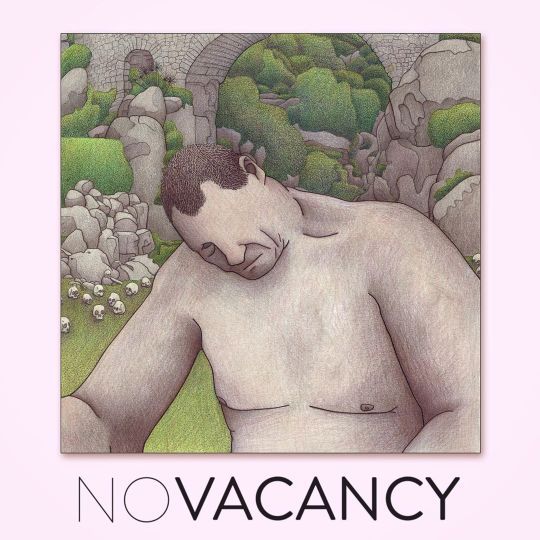
METAMORPH is now live online at @novacancygallery, with works by @hyunjukim82, @ruthstanton_art, and others. #ovid #metamorphosis #covid #drawing #polyphemus #cyclops #mythology #artinthetimeofcoronavirus (at No Vacancy Gallery) https://www.instagram.com/p/CCW-f5BDXNi/?igshid=twk4xys3ehsd
0 notes
Photo
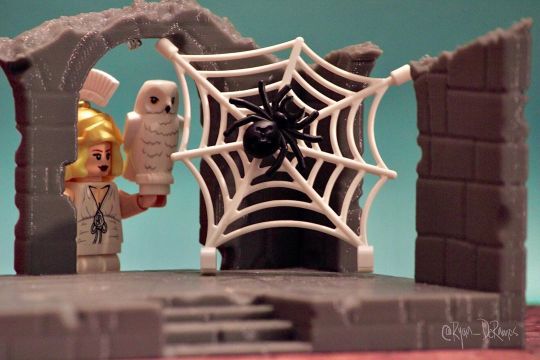
#ToyPhotography from last October, for #ClassicsTober. #mythology #lego #legophotography #arachne #athena https://www.instagram.com/p/CcW-DjLLrQR/?igshid=NGJjMDIxMWI=
1 note
·
View note
Text
Monster Ecology: Duergar
http://www.youtube.com/watch?v=c-g7o_e0414 The duergar are named after the dvergar of Norse mythology, who were the builders of Gleipnir. The duergar first appeared in the first edition in the original Monster Manual II (1983). The duergar appeared as a player character race in the original Unearthed Arcana (1985). There is an excellent Ecology article on the Duergar in Dragon #325. As of 5th edition, and unknown to the Duergar, their god has been killed, and his role taken up, secretly, by Asmodeus. As usual, all credit to the artists of work featured in the video, the full version of the music used is added to the channel's playlist, and if you enjoy the video, please consider making a contribution on Patreon at https://www.patreon.com/TheMightyGluestick (where you can find the full script of this video)
[ccw-atrib-link]
http://integralblog.com/index.php/2017/05/25/monster-ecology-duergar/
0 notes
Text
Monster Ecology: Duergar
http://www.youtube.com/watch?v=c-g7o_e0414 The duergar are named after the dvergar of Norse mythology, who were the builders of Gleipnir. The duergar first appeared in the first edition in the original Monster Manual II (1983). The duergar appeared as a player character race in the original Unearthed Arcana (1985). There is an excellent Ecology article on the Duergar in Dragon #325. As of 5th edition, and unknown to the Duergar, their god has been killed, and his role taken up, secretly, by Asmodeus. As usual, all credit to the artists of work featured in the video, the full version of the music used is added to the channel's playlist, and if you enjoy the video, please consider making a contribution on Patreon at https://www.patreon.com/TheMightyGluestick (where you can find the full script of this video)
[ccw-atrib-link]
http://integralblog.com/index.php/2017/05/25/monster-ecology-duergar/
0 notes
Text
Monster Ecology: Duergar
http://www.youtube.com/watch?v=c-g7o_e0414 The duergar are named after the dvergar of Norse mythology, who were the builders of Gleipnir. The duergar first appeared in the first edition in the original Monster Manual II (1983). The duergar appeared as a player character race in the original Unearthed Arcana (1985). There is an excellent Ecology article on the Duergar in Dragon #325. As of 5th edition, and unknown to the Duergar, their god has been killed, and his role taken up, secretly, by Asmodeus. As usual, all credit to the artists of work featured in the video, the full version of the music used is added to the channel's playlist, and if you enjoy the video, please consider making a contribution on Patreon at https://www.patreon.com/TheMightyGluestick (where you can find the full script of this video)
[ccw-atrib-link]
http://integralblog.com/index.php/2017/05/25/monster-ecology-duergar/
0 notes
Text
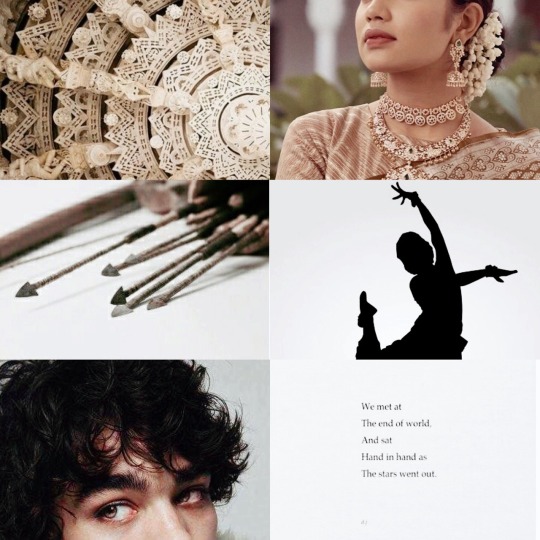
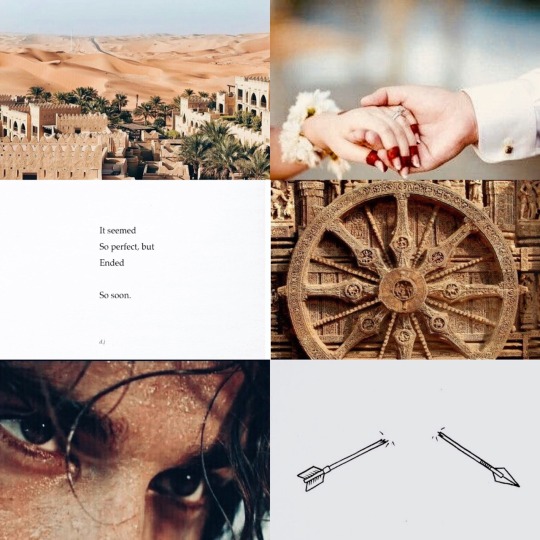
Hindu Mythology Couples Celebration Week ~
( @avani008 )
Abhimanyu-Uttara;
“I accept, therefore, O king, thy daughter Uttara for my daughter-in-law !
Surpassing all in knowledge of weapons, resembling a celestial youth in beauty, my son, the mighty-armed Abhimanyu,
is the favorite nephew of Vasudeva the wielder of the discus !
He, O king, is fit to be thy son-in-law and the husband of thy daughter !” - Arjuna, Virata Parva
68 notes
·
View notes
Photo
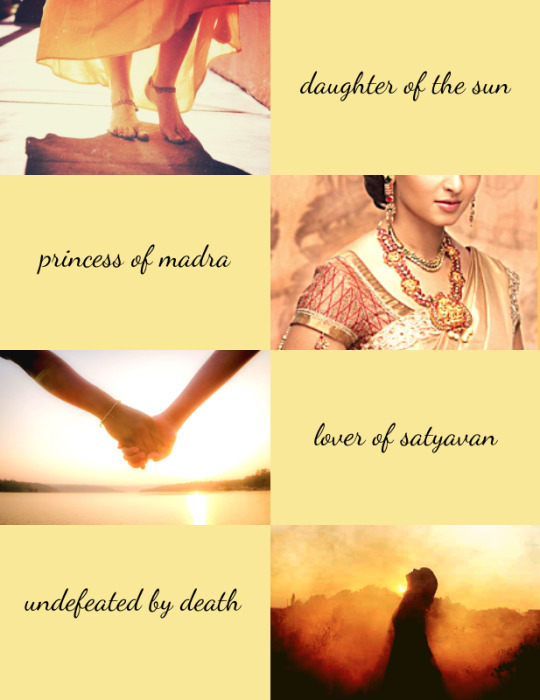
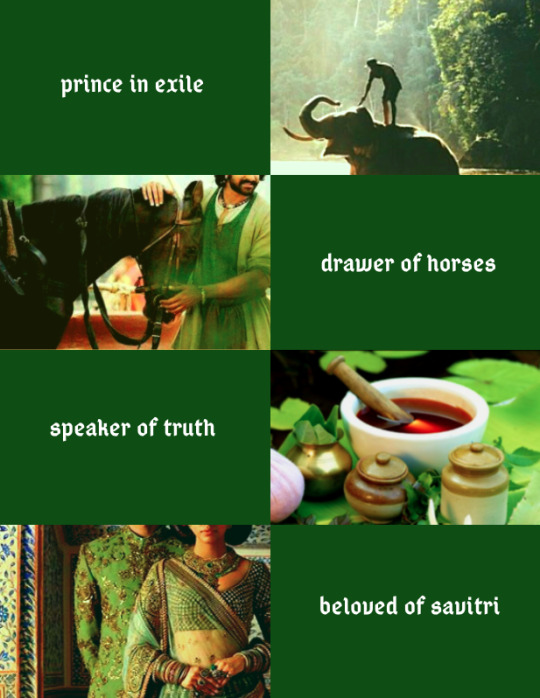
...Savitri said, 'The death can fall but once; a daughter can be given away but one; and once only can a person say, I give away! These three things can take place only once. Indeed, with a life short or long, possessed of virtues or bereft of them, I have, for once, selected my husband. Twice I shall not select. Having first settled a thing mentally, it is expressed in words, and then it is carried out into practice. Of this my mind is an example!'....”
“...His father speaketh the truth and his mother also is truthful in her speech. And it is for this that the Brahmanas have named the son Satyavan. In his childhood he took great delight in horses, and used to make horses of clay. And he used also to draw pictures of horses. And for this that youth is sometimes called by the name of Chitraswa...”
—Mahabharata, Vana Parva
#mythology ccw#savitri/satyavan#mahabharata#art by me#pray excuse the stealth not-quite-crossover#my favorite discovery is that satyavan#(who lacks the characterization that savitri has)#is canonically a huge dork#who likes to DRAW HORSES#this just made him 110% more endearing#and every time I read savitri’s speech#it somehow becomes more awesome
15 notes
·
View notes
Text
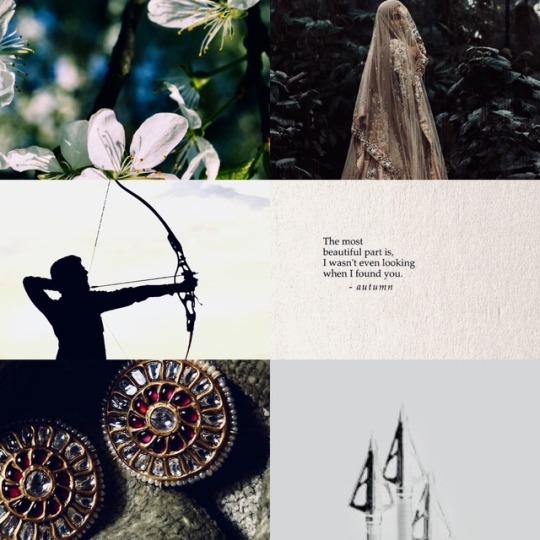
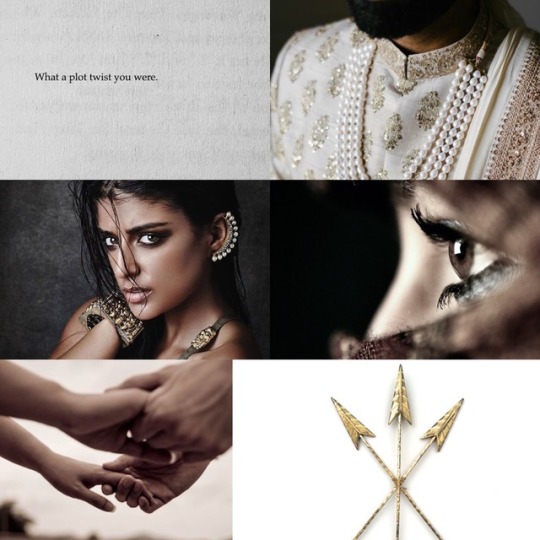
Hindu mythology Couples Celebration Week ~
( @avani008 )
Arjuna-Chitrangada;
Madan : “Let not your ornaments be the shield,
Preventing one to see yourself
In your true glory.
Love is not love when entwined with the illusion of ‘maaya’,
What beauty would you exhibit in your ornaments
To the beholder whose eyes are already immersed
In the greater truth of pure love?” - Tagore’s Chitrangada
72 notes
·
View notes
Text
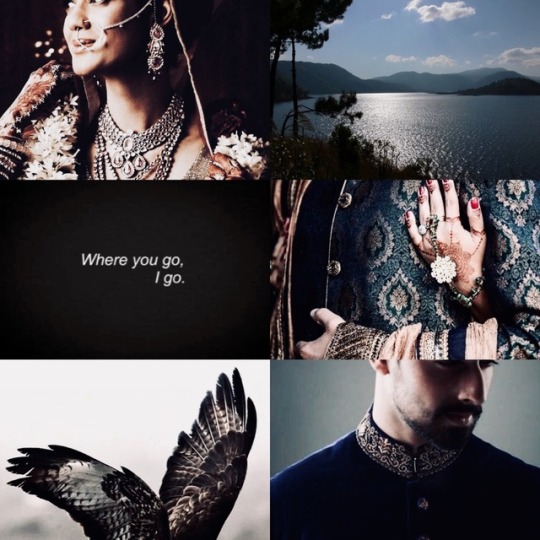
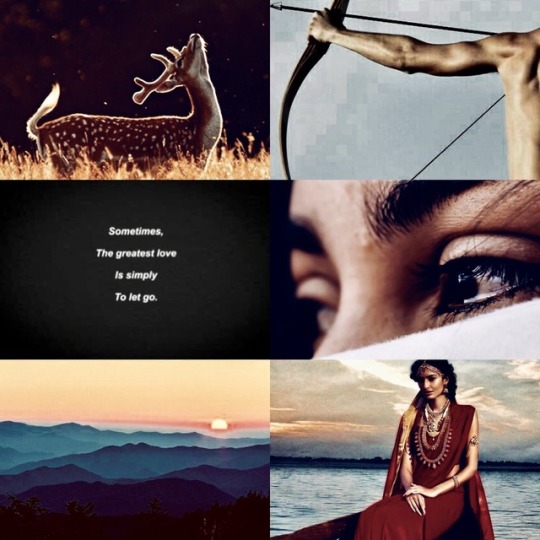
Hindu Mythology Couples Celebration Week ~
( @avani008 )
Rama-Sita ;
“I asked the stars
I asked the directions
I asked the tears drenched sight
the tear filled eyes are veiled with curtains of tears itself!
Oh moon faced, gold laced, slow gaited woman,
why do you face such turmoil? love?”
- Rama Chakkani Sita
65 notes
·
View notes
Text

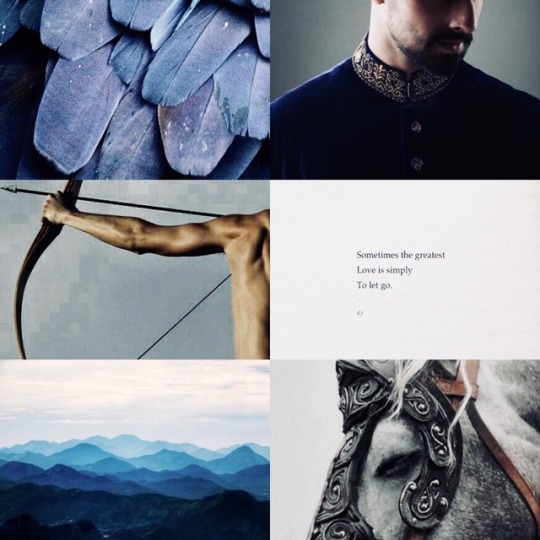
Hindu Mythology Couples Celebration Week ~
( @avani008 )
Ram-Sita ;
Råma was filled with rapture to behold Sita’s beauty; He admired it in His heart, but utterance failed Him.
He felt as if the Creator had put his whole creative skill in visible form and demonstrated it to the world at large.
“She lends charm to charm itself,” He said to Himself, And looks as if a flame of light is burning in a house of beauty.
The similes already employed by the poets are all stale and hackneyed; to whom shall I liken the daughter of Videha? - RamCharitramanas
56 notes
·
View notes
Text
Reminder: Mythology CCW Signups!
The original post (and the one that will be updated with the schedule) can be found HERE, but there are plenty of days left (and couples that you might claim :D)! Please keep on signing up :)
As it stands, at the moment, the schedule is as follows:
February 14- Arjuna/Chitrangada
February 15- Rama/Sita
February 16- Yudhisthira/Draupadi
February 17- Arjuna/Draupadi
February 18- Krishna/Rukmini
February 19- Ulupi/Chitrangada
February 20- Urmila/Lakshmana
February 21- Usha/Aniruddha
February 22- Savitri/Satyavan
February 23- Vasudev/Devaki
#ccw#ramayana#mahabharata#hindu mythology#indian mythology#so many more options!#so many couples to celebrate!#:D
7 notes
·
View notes
Text
Couple Celebration Week: Baahubali and/or Hindu Mythology?
Would anyone be interested in a rerun of the Couple Celebration Week from last year, for Baahubali and also for the Ramayana/Mahabharata/Indian mythology couples?
Briefly, this would be two separate challenges. Each would run simultaneously from February 14 for 7-10 days, with each day featuring a couple from the individual fandom (Baahubali couples on one list, mythology on the other) with people signing up ahead of time to create and post some form of content about that couple on that specific day.
You can sign up for multiple couples and more than one person can make stuff for each couple (I doubt anyone will complain if we suddenly have 7 new fics for any of these fandoms). All signing up for a couple means is that you commit to making either a fic, a graphic/gifset/icon, or just happy meta about why you like this couple or a list of headcanons you have! There’s no minimum word count, or requirements for art: only that it should be something that fits with the theme of celebrating that couple specifically. Last minute creations or discussions about each couple, even if you haven’t signed up, are very much encouraged–the only difference is that if you don’t sign up, I won’t be expecting you to make something!
Please let me know if there’s any interest for either of these: I think we’ll need, ideally, at least 5-7 people minimum to be able to go ahead? And if you want to suggest couples (any and all welcome, as are people who might be new to either fandom!) that would be great :)
5 notes
·
View notes
Text
Monster Ecology: Duergar
http://www.youtube.com/watch?v=c-g7o_e0414 The duergar are named after the dvergar of Norse mythology, who were the builders of Gleipnir. The duergar first appeared in the first edition in the original Monster Manual II (1983). The duergar appeared as a player character race in the original Unearthed Arcana (1985). There is an excellent Ecology article on the Duergar in Dragon #325. As of 5th edition, and unknown to the Duergar, their god has been killed, and his role taken up, secretly, by Asmodeus. As usual, all credit to the artists of work featured in the video, the full version of the music used is added to the channel's playlist, and if you enjoy the video, please consider making a contribution on Patreon at https://www.patreon.com/TheMightyGluestick (where you can find the full script of this video)
[ccw-atrib-link]
http://integralblog.com/index.php/2017/05/25/monster-ecology-duergar/
0 notes
Text
Monster Ecology: Duergar
http://www.youtube.com/watch?v=c-g7o_e0414 The duergar are named after the dvergar of Norse mythology, who were the builders of Gleipnir. The duergar first appeared in the first edition in the original Monster Manual II (1983). The duergar appeared as a player character race in the original Unearthed Arcana (1985). There is an excellent Ecology article on the Duergar in Dragon #325. As of 5th edition, and unknown to the Duergar, their god has been killed, and his role taken up, secretly, by Asmodeus. As usual, all credit to the artists of work featured in the video, the full version of the music used is added to the channel's playlist, and if you enjoy the video, please consider making a contribution on Patreon at https://www.patreon.com/TheMightyGluestick (where you can find the full script of this video)
[ccw-atrib-link]
http://integralblog.com/index.php/2017/05/25/monster-ecology-duergar/
0 notes